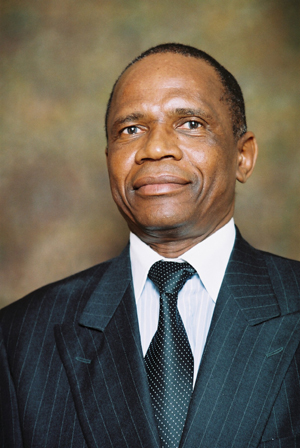Latest News Archive
Please select Category, Year, and then Month to display items
12 October 2020
|
Story Arina Engelbrecht
|
Photo Supplied
 Arina Engelbrecht from Organisational Development and Employee Well-being believes physical activity has a number of benefits for one’s health, including stress relief.
Arina Engelbrecht from Organisational Development and Employee Well-being believes physical activity has a number of benefits for one’s health, including stress relief.
Being physically active plays a big role in preventing the development of mental-health problems and in improving the quality of life of people experiencing mental-health problems.
Treatment for depression
Physical activity can be an alternative treatment for depression. It can be used as a stand-alone treatment or in combination with medication and/or psychological therapy. It promotes all kinds of changes in the brain, including neural growth, reduced inflammation, and new activity patterns are formed that promote feelings of calm and well-being. It releases endorphins – powerful chemicals in the brain that energise your spirit and make you feel good.
Physical activity can be very effective in relieving stress. Research in adults has found that physically active individuals tend to have lower stress levels compared to individuals who are less active. It also leads to improved sleep. When a person sleeps better and feels more rested, overall quality of life improves. They cope better with daily life stressors.
Reduce Alzheimer's risk
Regular physical activity can reduce your risk of developing Alzheimer's disease by up to 50%. It can also slow down further deterioration in those who have already started to develop cognitive problems. It stimulates the brain’s ability to maintain old connections as well as to make new ones.
A study asked people to rate their mood immediately after periods of physical activity (e.g. going for a walk/run, cycling, doing housework) and periods of inactivity (e.g. reading a book or watching television). Researchers found that participants felt more content, more awake, and calmer after being physically active compared to after periods of inactivity.
In conclusion, people who are physically active feel a sense of well-being, feel more energetic throughout the day, sleep better at night, have sharper memories, and feel more relaxed and positive about themselves and their lives.
“Being physically active not only changes your body, it changes your mind,
attitude, and your mood.” – Arina Engelbrecht
UFS holds memorial service for Prof Benito Khotseng
2015-01-09

Prof Benito Khotseng |
The management of the University of the Free State is saddened by the passing away of Prof Benito Khotseng, former Vice-Rector: Student Affairs at the UFS.
Prof Khotseng died from a heart disease on Sunday 4 January 2015 at the age of 67.
He joined the University of the Free State as a senior manager more than two decades ago.
According to family and colleagues, his death has left a void in the education fraternity.
Prof Kalie Strydom, who has been a colleague of Prof Khotseng for more than 20 years, described him as a principled leader who did not promote and argue educational issues in his own interest.
“His focus was never on benefitting opportunistically in the short term, whether professionally or financially. I had the privilege of participating with Benito in many meetings and fundraising efforts where the correct values/principles and the organisations/institutions for which he worked benefitted, but other than so often happens in life, Benito did not benefit personally. We celebrate him forever, though with tears in our eyes.”
A memorial service for Prof Khotseng will be held at the UFS’s Bloemfontein Campus:
Monday 12 January 2015
10:00
Albert Wessels Auditorium, Bloemfontein Campus, UFS